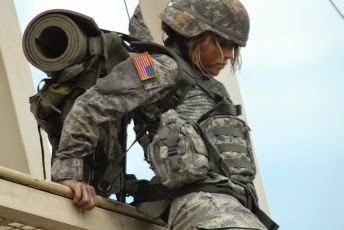Juche!
The concept of Strategic Patience with North Korea sounds great in a climate controlled environment surrounded by smart people. In the real world with the real North Korea - it's about as cool as allowing some chic Xanx'd out of her mind to drive you home
After North Korea launched its sixth satellite, or long-range missile, on Saturday, U.S. experts of international politics seem to have given up all hope for changing Pyongyang's policy, according to media reports Tuesday.
Prevalent views among these gurus of regional politics are that Washington should put ultrahigh pressure on the North that exceed the sanctions it put on Iran before the Islamic country reached an agreement with the United States to abandon its nuclear programs, the reports said.
They call on 44's administration to discontinue its "strategic patience" policy and turn toward far bolder and more destructive steps with some even suggesting a shift such that regime change in North Korea might be inevitable. This indicates how seriously the U.S. experts regard the North's "lethal combination" of nuclear warheads and long-delivery vehicles, they said.
"The recent nuclear test and missile launch have put an end to the possibility of improving the relationship between the U.S. and North Korea," Revere Evans, former deputy assistant secretary of state for East Asia, was quoted as saying by Yonhap News Agency. "There is no room for passive approaches like ‘strategic patience' any longer in the face of escalating threats from North Korea's nuclear weapons and missiles."
Evans, also a former U.S. deputy mission chief in Seoul, said he could not rule out the possibility that Washington would turn toward changing the North Korean regime given Pyongyang's ability to increase its nuclear and missile capacity. "Some experts here think the only way to terminate the North's nuclear programs is put an end to its regime," he said.
This is a dangerous approach but the North Korean provocations and its pursuit of nuclear power have shut off room for all alternatives, said Evans who had emphasized the two-track approach of dialogue and pressure.
"Some U.S. military officials think North Korea is capable of attacking the mainland U.S. with miniaturized nuclear weapons," he said. "The U.S. and its allies ought to take new, strong and unprecedented sanctions, and the focus of these measures is to put the stability and survival of the North Korean regime in danger."
Evans said the allies should not only deploy the Terminal High Altitude Area Defense (THAAD) system but strengthen the joint military drills of the U.S., Japan and Korea, and put economic, financial and political sanctions on the North. "They should block oil supplies to the North, interrupt its access to the international financial system and adopt a ‘secondary boycott' of banks, businesses and individuals that deal with North Korea," Evans said.
Robert Manning, senior fellow at the Atlantic Council, agreed, saying, "The U.S., Korea and Japan will need to take strong measures in ways to drastically increase costs for the North's nuclear and missile development."
He said the U.S. should strip Kim Jong-un of his "credit cards," as Washington did with Iran, and called for South Korea to stop all activities that could help the North earn hard currency, such as the operation of the inter-Korean factory park at North Korea's border city, Gaeseong.
Alan Romberg, a researcher at the Stimson Center, said North Korea has already crossed an important line or is on the border line, and the Obama administration has no other choices but to cope with it on a different dimension. "As direct military sanctions accompany too huge a cost, however, the U.S. administration would avoid them," he was quoted as saying.
Other experts also agreed on the need for drastically toughening sanctions on the North and to prepare for its eventual collapse while emphasizing China's role in the process.
Victor Cha, chief Korea analyst at the Center for Strategic and International Studies, who has returned from "track two" (private) contact with the North, expressed concerns about escalating tension on the Korean Peninsula.
"Sanctions may be important but we are entering into a dangerous phase," Cha said. "Regional countries conducting nuclear tests, and then having military exercises against them without any channel of dialogue are highly likely to lead to a misjudgment and likely raise the tension to an unthinkable level."














1 comments:
I would suggest going even further. In the case of the last test we should have blown the missile while it sat on the pad. We have the ability to proactively prevent any further testing of their ICBMs and reentry vehicles. All their ICBMs are liquid fuel and so are easily detectable and destroyed before they can be fueled and launched.
Post a Comment